Andrew D Wilson
 Description
Description
MY BLOGS
-
Notes from Two Scientific Psychologists
http://psychsciencenotes.blogspot.co.uk/
Andrew D Wilson & Sabrina Golonka are two psychologists who are interested in developing a more coherent, naturalised approach to the scientific study of human behaviour. Andrew studies the perceptual control of action, with a special interest in learning. Sabrina studies similarity and categorisation. We're both interested in exploring non-representational theories in psychology, including dynamical systems and ecological psychology.
LATEST ARTICLES ( 206 )
-
Expectations and the Size-Weight Illusion
The size-weight illusion (SWI) occurs when people are asked to judge the weights of two different sized but identically weighted objects. The smaller object is... Read more
Posted on 31 August 2017 LANGUAGES, PHILOSOPHY, PSYCHOLOGY, SCIENCE -
Dear Disney; Let Me Help You VR

Disney posted a video recently from some researchers getting people to catch real balls in virtual reality (VR). It was a nice demo of some technology, and I... Read more
Posted on 18 July 2017 LANGUAGES, PHILOSOPHY, PSYCHOLOGY, SCIENCE -
Ecological Information Is a Perceptual Mapping That Tracks Evolutionary Fitness
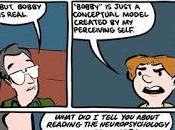
Interface theory in cartoon form. Thanks to Louise Barrett for reminding me this exists :)In my last post I was thinking out loud about some ecological lines... Read more
Posted on 21 May 2017 LANGUAGES, PHILOSOPHY, PSYCHOLOGY, SCIENCE -
Does Interface Theory Have Consequences for the Ecological Approach?
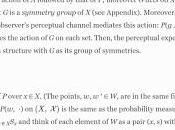
I've been working on a commentary about interface theory (Hoffman, Singh Prakash, 2015) which I have previously blogged about here. Read more
Posted on 20 May 2017 LANGUAGES, PHILOSOPHY, PSYCHOLOGY, SCIENCE -
Exploring Some Handwriting Data (Experiment 1)

I have been trying to science handwriting for a year or two now, and I've had some time to dive into some recent data I collected to address some issues coming... Read more
Posted on 02 May 2017 LANGUAGES, PHILOSOPHY, PSYCHOLOGY, SCIENCE -
Some Thoughts on Handwriting

A few years a go I reviewed a paper about a method, the sigma-lognormal model, to quantitatively assess handwriting (Plamondon et al, 2013). Read more
Posted on 19 April 2017 LANGUAGES, PHILOSOPHY, PSYCHOLOGY, SCIENCE -
The Ecological Approach, Explained to an 8 Year Old
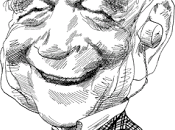
About 3 weeks ago I got an email from a person who had found our blog via Robert Epstein's piece 'The Empty Brain'. The email saidI've had a good read this... Read more
Posted on 06 April 2017 LANGUAGES, PHILOSOPHY, PSYCHOLOGY, SCIENCE -
Language, Thought and the Ecological Approach; A Purple Peril

As part of a class on cognitive psychology, I give a seminar in which we talk about the research on the relationship between language and thought. In particular... Read more
Posted on 25 March 2017 LANGUAGES, PHILOSOPHY, PSYCHOLOGY, SCIENCE -
Evidence for the Kinematic Specification of Dynamics
Gibson’s most detailed analysis of the KSD problem came from work on the perception of dynamic occlusion (viewing one surface become progressively hidden... Read more
Posted on 26 February 2017 LANGUAGES, PHILOSOPHY, PSYCHOLOGY, SCIENCE -
The Ecological Approach - The Accidental Textbook
Over the years this blog has collected 232 posts on a wide range of topics and we have multiple papers out and forthcoming working on the ecological approach... Read more
Posted on 18 February 2017 LANGUAGES, PHILOSOPHY, PSYCHOLOGY, SCIENCE -
The Nature of Ecological Perceptual Information
The central issue in the perception of the world is how the perceptual system comes into contact with that world. In vision, the assumption for centuries has... Read more
Posted on 18 February 2017 LANGUAGES, PHILOSOPHY, PSYCHOLOGY, SCIENCE -
Affordances Are Not Relations, Part 1: Chemero (2009)
Affordances are on my mind right now as I develop the throwing research programme, and a major commitment of that work is that affordances are (dispositional)... Read more
Posted on 16 December 2016 LANGUAGES, PHILOSOPHY, PSYCHOLOGY, SCIENCE -
The Affordances of Natural Vs Designed Environments (A Purple Peril)
I had a conversation with Eric Brymer (@Ericbrymer) a few weeks ago. Eric is a Reader at Leeds Beckett and is an ecologically minded psychologist interested in... Read more
Posted on 10 December 2016 LANGUAGES, PHILOSOPHY, PSYCHOLOGY, SCIENCE -
Is the Ecological Approach Radical Enough?
Radical enactivists do not just want to get representations out of their explanations for our mental life. They also want to get rid of the notion of content.... Read more
Posted on 03 December 2016 LANGUAGES, PHILOSOPHY, PSYCHOLOGY, SCIENCE -
Scarantino (2003) “Affordances Explained”
Turvey, Shaw, Reed and Mace (1981) laid out an ontology of affordances; a formal account of the kind of things they are. They described them as dispositions,... Read more
Posted on 02 December 2016 LANGUAGES, PHILOSOPHY, PSYCHOLOGY, SCIENCE -
Free Energy: How the F*ck Does That Work, Ecologically?
Karl Friston has spent a lot of time recently developing the free energy principle framework as a way to explain life, behaviour and cognition; you know,... Read more
Posted on 17 November 2016 LANGUAGES, PHILOSOPHY, PSYCHOLOGY, SCIENCE -
The Field is Full, Just Not of Affordances - A Reply to Rietveld & Kiverstein
I recently posted about relational accounts of affordances and how one way to summarise my objections to them is that they cannot support mechanistic models of... Read more
Posted on 08 November 2016 LANGUAGES, PHILOSOPHY, PSYCHOLOGY, SCIENCE -
Nonlinear Covariation Analysis (Müller & Sternad, 2003)
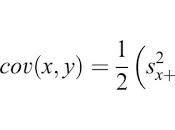
I have been working my way through some analyses that fall under the idea of the motor abundance hypothesis (Latash, 2012) - the idea that motor control does no... Read more
Posted on 28 October 2016 LANGUAGES, PHILOSOPHY, PSYCHOLOGY, SCIENCE -
Optimal Feedback Control and Its Relation to Uncontrolled Manifold Analysis
Motor control theories must propose solutions to the degrees of freedom problem, which is the fact that the movement system has more ways to move than are ever... Read more
Posted on 13 October 2016 LANGUAGES, PHILOSOPHY, PSYCHOLOGY, SCIENCE -
What Can You Do With Uncontrolled Manifold Analysis?
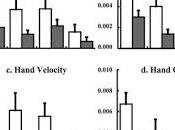
There is generally more than one way to perform a task (the ‘bliss of motor abundance’) and so it’s possible for a movement to incur a little noise that... Read more
Posted on 11 October 2016 LANGUAGES, PHILOSOPHY, PSYCHOLOGY, SCIENCE
